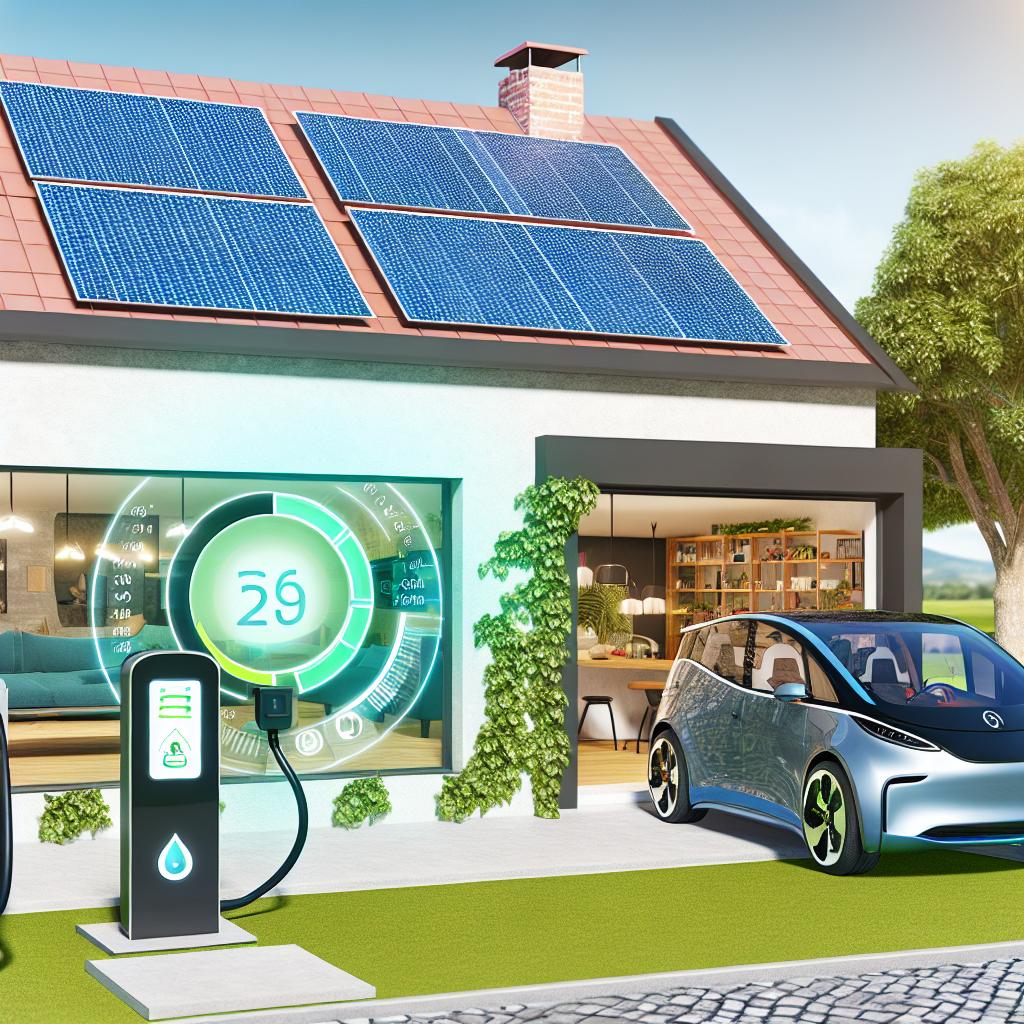
The Role of Smart Home Technology in Reducing Energy Consumption
As global energy demands continue to rise, the push towards more sustainable living has become increasingly important. One effective approach to achieving this is through the use of smart home technology. By integrating advanced systems that provide increased control and automation, smart home technology can significantly contribute to reducing energy consumption.
Understanding Smart Home Technology
Smart home technology encompasses a range of devices and systems that are connected through the Internet of Things (IoT). These devices can communicate with one another and can be controlled remotely, allowing homeowners to manage various aspects of their homes, such as lighting, heating, cooling, and appliances. The enhancement of such capabilities aims to optimize energy usage, thereby reducing unnecessary consumption and wastage.
Efficiency Through Automation
Automation is a key feature of smart home systems that contributes to energy efficiency. Automated systems can be set to turn off lights in unoccupied rooms, adjust thermostats based on weather conditions, and schedule appliances to operate during off-peak energy times. For instance, smart thermostats learn user preferences and can adjust heating and cooling accordingly, offering energy savings without compromising comfort.
Moreover, smart home systems can incorporate motion sensors and occupancy detection to fine-tune energy consumption. These sensors can determine when a space is occupied, enabling lights and appliances to function only when necessary. This dynamic adjustment based on real-time occupancy not only conserves energy but also prolongs the life of devices by reducing unnecessary wear and tear.
Real-Time Monitoring and Data Insights
Smart home devices often come equipped with monitoring capabilities that provide real-time data on energy use. This allows homeowners to gain insights into their consumption patterns and identify areas for improvement. Through mobile apps and web interfaces, users can see which devices are consuming the most energy and make informed decisions to reduce usage.
Detailed analytics provided by smart meters and other monitoring tools enable homeowners to track their energy consumption over time. This historical data can reveal long-term trends and seasonal variations, allowing for better planning and management of energy resources. Users can set specific energy goals and receive feedback on their progress, fostering a more proactive approach to energy management.
Integration with Renewable Energy Sources
Another advantage of smart home technology is its potential for integration with renewable energy sources. Many smart home systems can be paired with solar panels and other renewable technologies to maximize energy efficiency. By using smart grids and energy storage solutions, homes can utilize renewable energy more effectively, further reducing reliance on non-renewable energy sources.
The integration with renewable sources can also facilitate the concept of net-zero energy homes, where the total amount of energy used is equal to the amount of renewable energy created on-site. Smart systems can prioritize the use of solar or wind energy when available and switch to grid power during shortages, ensuring optimal energy utilization while minimizing environmental impact.
Challenges and Considerations
While the benefits of smart home technology for energy reduction are significant, there are some challenges to consider. Initial costs for smart devices and systems can be high, and the complexity of installation may require professional assistance. Additionally, there are concerns regarding data security and privacy, as smart home systems often involve extensive data collection.
Security measures must be implemented to protect against breaches and unauthorized access, requiring users to stay informed about the latest updates and security practices. Furthermore, compatibility with existing home infrastructure may pose challenges, necessitating upgrades or modifications to support smart technology.
Despite these challenges, the long-term savings and environmental benefits often outweigh the initial investment and concerns. The continuous advancements in technology are likely to bring down costs and enhance the ease of installation, making smart home systems more accessible to a broader audience. More information about smart home technologies and their benefits can be found on various technology review and energy conservation platforms, such as Energy Efficient Home Design.
Conclusion
Smart home technology plays a critical role in reducing energy consumption by providing in-depth control, automation, and integration capabilities. As this technology continues to evolve and become more accessible, it holds the promise of significantly lowering household energy use and contributing to global sustainability efforts.
By embracing smart home technology, individuals can take meaningful steps towards a sustainable future. As more homes adopt these systems, the cumulative impact on global energy consumption could be profound, leading to a more balanced and less resource-intensive lifestyle. The potential of smart technology to revolutionize energy management is undeniable, and its growing presence in residential settings marks an important shift towards smarter, more efficient, and environmentally-conscious living.